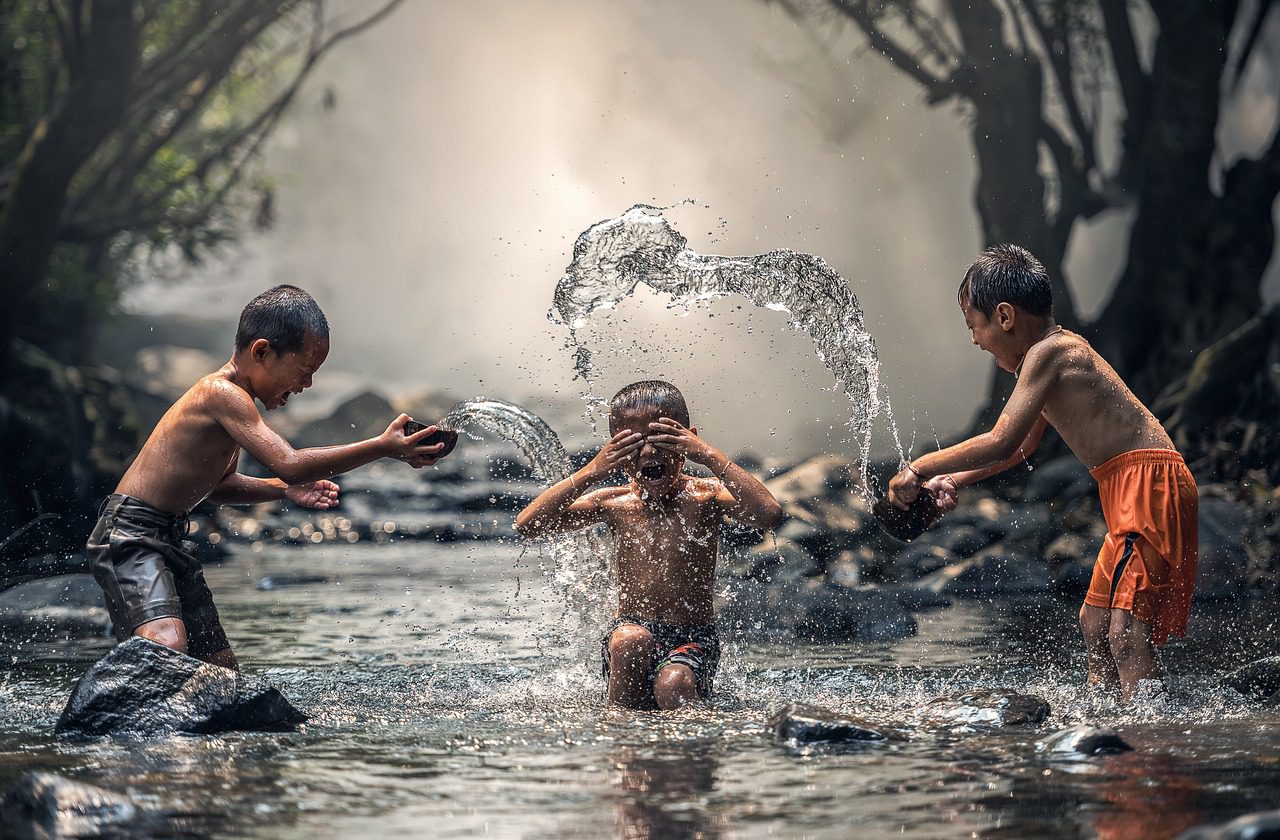670 Liter – So viel Wasser fiel als Niederschlag 2022 in Deutschland!
46 300 Liter – so viel Wasser verbraucht ein deutscher Bürger pro Jahr!
1.4 Mrd Liter – so viel Wasser gibt es insgesamt auf der Erde!
2/3 der Erde sind mit Wasser bedeckt!
Es scheint auf unserem „blauen“ Planeten einen Überfluss an Wasser zu geben. Und dennoch:
771 Millionen Menschen fehlt eine Grundversorgung mit Trinkwasser
2.2 Millionen Menschen sterben jährlich aufgrund von Infektionskrankheiten, ausgelöst durch verschmutztes Wasser.
Diese Zahlen zeigen, dass das Wasser auf der Erde extrem ungleich verteilt ist. Und das nicht nur regional, sondern auch zeitlich gesehen. In einigen Regionen leiden die Menschen in manchen Monaten unter extremen Überschwemmungen, wohingegen sie dann Monate mit dramatischer Wasserknappheit überleben müssen.
Heute am internationalen Weltwassertag soll daher auf die Bedeutsamkeit der Ressource Wasser aufmerksam gemacht werden.
In diesem Jahr steht dieser Tag unter dem Motto „Accelerating Change“ – also etwa „den Wandel beschleunigen“. Damit soll die Wichtigkeit nationaler und internationaler Zusammenarbeit ausgedrückt werden, um das in der Agenda 2030 festgelegte Ziel, bis 2030 sauberes Wasser für alle Menschen zu gewährleisten, zu erreichen.
Der Zugang zu sauberem Wasser ist essentiell für das Überleben und eine gesunde Entwicklung; und das in vielerlei Hinsicht. Wird verschmutztes Wasser getrunken, steigt die Gefahr an Infektionskrankheiten zu erkranken enorm. Auch eine ausreichende Hygiene ist nur mit sauberen Wasser möglich. Dabei sind von den Gefahren vor allem die Kinder betroffen: Täglich sterben weltweit mehr als 1.000 Kinder unter fünf Jahren an Krankheiten, die durch verschmutztes Wasser, fehlenden Sanitäreinrichtungen und mangelnder Hygiene verursacht werden.
Wassermangel verhindert außerdem in vielen Fällen die Schulbildung: 42 % der Schulen weltweit verfügen nicht über sanitäre Einrichtungen. Insbesondere Mädchen bleiben daher während ihrer Menstruation den Schulen oftmals fern.
Mit dem Klimawandel verschlimmert sich die Situation vielerorts noch weiter. Fast 500 Millionen Kinder leben in Gebieten die in Zukunft einem höheren Überschwemmungsrisiko ausgesetzt sind. Bereits heute leben 450 Millionen Kinder in Regionen mit hoher oder extrem hoher Wasserunsicherheit. Schätzungen zufolge wird 2040 fast jedes vierte Kind auf der Welt in einem Gebiet leben, das von extremer Trockenheit betroffen ist.
In unseren Projekten versuchen wir durch gezielte Maßnahmen, diese Situation zu verbessern. An erster Stelle steht dabei der Aufbau und die Einhaltung von Hygienestandards, um einer weiteren Kontaminierung des Wassers vorzubeugen. So werden sowohl in Myanmar als auch in Tansania regelmäßig Schulungen für das medizinische Personal im Bereich Hygiene durchgeführt. Darüber hinaus konnten wir mit Hilfe der Partner vor Ort in verschiedenen öffentlichen Einrichtungen Schilder zum z. B. richtigem Händewaschen anbringen. In Tansania haben wir außerdem im vergangenen Jahr den Bau eines Trinkbrunnens in Nyangao unterstützt.



